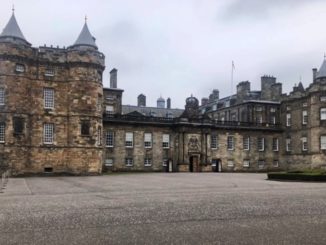Previously in Oldham
In July’s first part of Brown Wall, Blue Line we looked at Oldham. A report entitled Review into historic safeguarding practices in the borough of Oldham exposed a seedy underbelly of child abuse, cover-up and corruption in public life in the once-proud Lancashire mill town exacerbated by an endemic mafia-like Baradari (or ‘brotherhood’) amongst Pakistani Muslims corrupting business, local Labour politics, the media and the law.
The sheer amount of money involved in the county lines drugs trade and child sexual exploitation of British girls by immigrant gangs has created similar problems in the most unlikely of places.
Within days of the publication of the Oldham report, using the old trick of getting all of the bad news out at once, the result of another investigation was published. The Independent Office for Police Conduct’s (IPCC) The Operation Linden Report looked into South Yorkshire Police’s response to reports of non-recent child sex abuse and exploitation in Rotherham between 1997 and 2013. Already nine years out of date, presumably citizens will read about today’s inconvenient concerns in 2031.
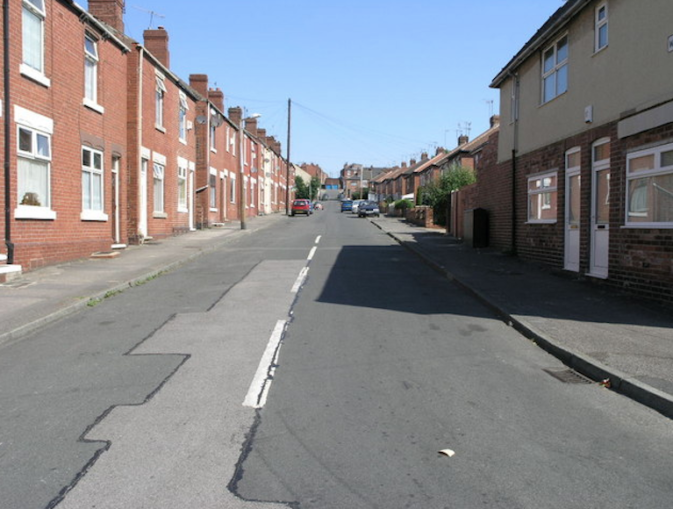
Terraced/semi-detached houses (Rotherham),
Michael Patterson – Licence CC BY-SA 2.0
The Linden Report
In Rotherham, 265 separate allegations were made against 47 police officers, resulting in 2 written warnings, 7 ‘no further actions’ and 3 management action ‘words of advice’. One matter was referred to the Crown Prosecution Service after an officer may have committed a criminal offence under the Data Protection Act. Twenty-one officers had retired or were no longer in the service and weren’t investigated.
The conclusions of the report were ridiculed by mainstream media. As with Oldham, reading the body of the report reveals more concerns than its whitewashed head-line grabbing conclusions. Amongst a long list of breathtaking scandals:
- The parents of a girl raped so severely in a Rotherham Park that she need surgery were told by a police officer it would teach her a lesson.
- An officer claimed the age of consent is 12.
- Parents were told having a much older Asian ‘boyfriend’ was a fashion accessory that girls would grow out of.
- One rape victim, after being found under a rapist’s bed in a ‘hotel’, was prosecuted for having a police baton in her possession. (In this context, a hotel is a room for hire by the hour above a grubby takeaway).
The Jay Report, August 2014
The context of IPCC enquiry was a series of Asian Muslim child-rape scandals in Rotherham and many other British towns and cities. After years of lies, cover-ups and denial, the Jay report eventually lifted the lid on widespread sex abuse in the South Yorkshire town when published in August 2014. Alexis Jay OBE’s Independent Inquiry into Child Sexual Exploitation in Rotherham covered the years between 1997 and 2013. Note, the cover-up includes the entire 13 years of the Blair/Brown New Labour government from 1997 – 2010 with its electoral dependence on a Brown Wall of Asian Muslim ghettos in the North of England.
The report concluded that by a conservative estimate 1,400 girls aged between 11 and 16 had been raped and trafficked by Asian gangs in Rotherham. ‘Asian’ is used as a byword for Pakistani Muslims. Subsequently, another byword emerged to cover rape and trafficking: Child Sexual Exploitation or CSE. A definition of the euphemism was contained in Gladman & Adele’s work Child Sexual Exploitation After Rotherham;
“a form of child sexual abuse in which children are offered something – money, drugs, alcohol, food, a place to stay, or even just affection – in exchange for sexual activity. Violence and intimidation are common.”
According to Jay, children as young as 11 were raped by multiple perpetrators with taxi drivers abducting children from schools and care homes. Among the horror stories related by Jay; a child was doused in petrol and threatened with being set alight. Children were threatened with guns and witnessed violent rapes. Victims and witnesses were intimidated by gangs threatening them, their families and their younger siblings. The rapes resulted in miscarriages, abortions and live births to young girls whose babies then were taken from them by social services.
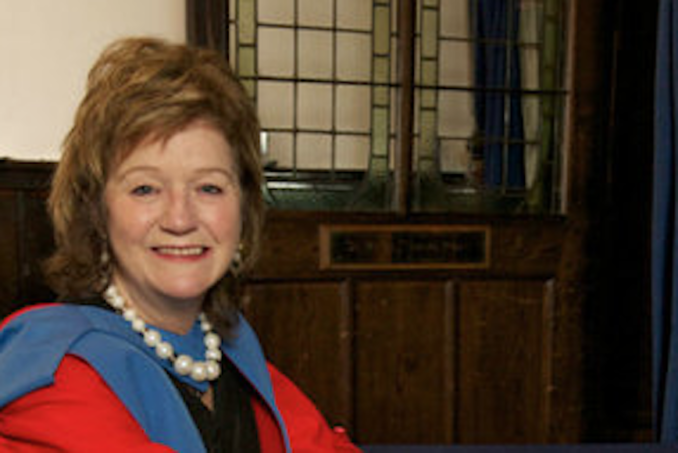
Professor Alexis Jay,
HM Government – UK Open Government Licence 3.0
A Baradari Grooming Network
Jay proved to be the tip of an iceberg. Subsequently, we learned of a wide range of terrible stories as, in effect, the Baradari cast a wide net in order to ‘groom’ young girls.
A charity called Kin Kids was set up by Karen MacGregor who worked for taxi firms which were part of a seedy Pakistani nighttime economy which included sleazy takeaways and shisha bars. Purportedly the charity was to help vulnerable girls being cared for by grandparents. The young victims were taken to stay with MacGregor who plied them with alcohol and pimped them.
The charity was supported by local Labour MP John Healey. Public school boy and Cambridge graduate Comrade John claimed he didn’t know MacGregor was procuring children for sex and, along with fellow local Labour MPs Sarah Champion and Sir Keith Barron, successfully sued UKIP MEP Jane Collins after she suggested otherwise. MacGregor was subsequently jailed for 13 years.
In nearby Sheffield, Shafina Ali set up a fake rape crisis centre and fake helpline to trap girls who could be passed on to grooming gangs. Shafina Ali died in 2009 without ever having faced justice. Shafina Ali also worked for taxi firms, was known by different names, and was an associate of key abusers. An anonymous local social worker told the BBC that Shafina Ali was known to be dangerous and the crisis centre was known to be fake. However, they weren’t closed down until 1999. Two years later, Shafina Ali resurfaced with the social worker claiming concerns were raised in strategy meetings with police and senior council officials but nothing was done.
So much for the links between the charity sector and grooming gangs. Were there also links with the police? Following the publication of the Jay report in August 2014, a significant complaint was made about the South Yorkshire Constabulary. In September, the IPCC announced that 10 South Yorkshire police officers had been referred to the watchdog.
The Events of January & February 2015
In early 2015, this concerned citizen’s ears pricked up when the BBC reported the IPCC were investigating a police officer who had asked a vulnerable girl, who we shall call Miss A, for a ‘date’. The Guardian referred to the incident as a ‘romantic approach’, which to this investigator suggested, as per Gladman & Adele’s definition, a pattern of befriending a girl by pretending to be her boyfriend and then pressuring her to pay the ‘boyfriend’s’ debts through sex trafficking. Soon afterwards my ears caught fire when I heard reports of a killing in Sheffield. A police officer had been hit by a Vauxhall Corsa on the 28th of January 2015 at about 10:15 pm. The collision occurred in the sleazy Darnall area of the South Yorkshire city, beside a grubby takeaway called Mirza’s Spices.
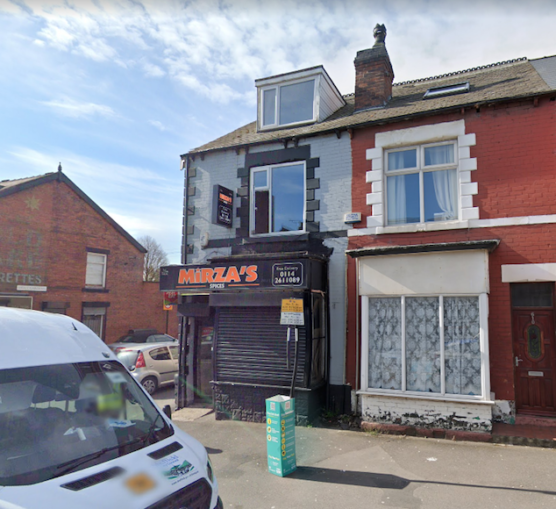
© Google Street View 2022, Google
The officer died in hospital a week later, on Friday 6th of February. Although both the Oldham and Rotherham child abuse reports name no names, this officer is conveniently dead and unlike Labour MPs can’t sue. The day after the death, the newspapers did name the victim as PC Hassan Ali, a 44-year-old neighbourhood officer with 18 years of service in the South Yorkshire force. He was not on duty at the time of the collision. Eyewitnesses claimed PC Ali stepped into the road without looking. However, those eyewitnesses and the driver of the car that killed him weren’t what they at first seemed.
The Death of PC Hassan Ali
Almost immediately after the death, on Friday February 6th 3:39 pm, The Guardian and Sheffield Star named PC Ali and reported him as having been under investigation in connection with the Rotherham child sexual abuse affair. Meanwhile, South Yorkshire Police was treating the death as an accident. The Guardian quoted,
“The driver who hit him has been spoken to,” said a force spokeswoman. She said there were no indications of foul play or the crash being a “hit job”.
Four complaints had been made about Ali at least two of which concerning vulnerable girls being asked on dates. Ali had asked Miss A out numerous times, the first being when she was 16. The force would not originally confirm if Ali was the officer referred to in the complaint but it later became evident he was. It is also possible to piece together that when the girl was 16, Ali would have been 31 and will have been a police officer for five years. In response to PC Ali’s death, David Greenwood of Wakefield solicitors Swarkazi made a statement in which he insisted the allegations against the officer should be pursued regardless of his death.
“These are allegations of inappropriate activity by a police officer who is tasked and has a duty to investigate crimes. If this has in the past caused girls to be exploited then we need to know about it. The story of PC Ali is only one part of the whole story of child sexual exploitation in Rotherham. It’s important that this element of the story is investigated properly so we can fit all the pieces together and understand what was happening and what allowed the exploitation to happen over such a long period.”
Miss A, already a victim of CSE, told reporters PC Ali was assigned to her case after a support worker persuaded her to go to the police after a violent abuser had put her in hospital. The Guardian quoted her as saying,
“I remember PC Ali, I remember him very well. He came to my home after I left my abuser and Ali asked me out on a date. I thought that inappropriate given that I had only turned 16,”
A few years later she encountered PC Ali again when her family had been threatened with kidnap and violence. She rang him and asked for a photograph of her abuser to pass to her child’s school. Despite claiming it could cost him his job, Ali brought a photograph to her home and again asked her out on a date. The Guardian continued,
Public confidence and trust in Rotherham police is so fragile that many people suspect foul play in Ali’s death, despite police insisting there is currently no cause for suspicion. [Miss A’s] father said: “We don’t know what happened. Our minds might be working overtime but they are being very coy about it. He was put on restricted duties and the next thing we know is that he is dead. I don’t think anyone has any trust reporting to police – that’s why we have the problems we have now. It’s going to take a lot to rebuild that.’ He added: “There’s so little trust – everyone is asking the same questions – what are the circumstances? Did he walk in front of the car or was it a hit and run. Police are being cagey. People are sceptical. People don’t trust the police because of what has happened in the past.”
Perhaps evidence given to the courts regarding the resulting careless driving case might reassure the public? Before that, in January 2016, was the first of many trials of Pakistan grooming gang members. These approaching cases meant comment was closed down as a matter of sub judice and during an abuse trial in early 2016 media were restricted in what they could report because of a subsequent trial regarding the death of PC Ali.
The Abuse Trial of January 2016
In court, Miss A described a deal between a police officer she called Ali (who we now know to be PC Hassan Ali) and an Akhtar who we now know to be a Labour councillor and Rotherham Labour council’s former deputy leader Jahangir Akhtar. Aged 14, Miss A had been abducted by a grooming gang and recalled being in a car with a defendant called Arshid Hussain, known as Ash. According to her evidence, while in the car ‘everyone was ringing’ with Mr Hussain having a conversation with PC Ali in which the officer promised that if the girl was dropped off at a filling station, Hussain wouldn’t be prosecuted.
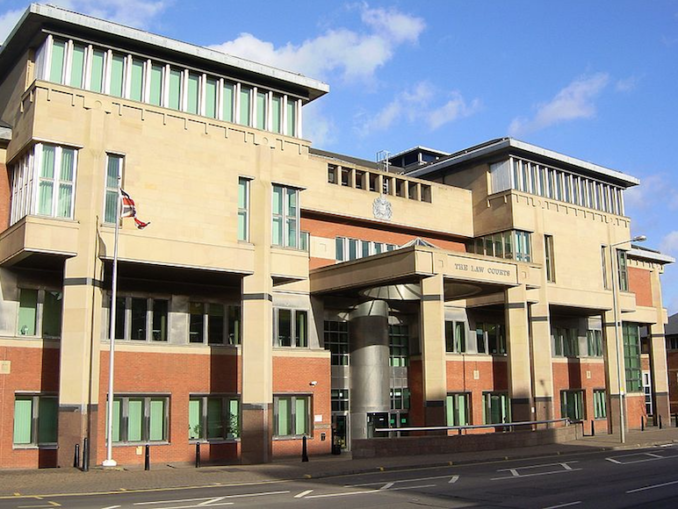
Sheffield Law Courts,
Bencherlite – Licence CC BY-SA 2.0
Jurors were told that Ali was not the only police officer to have a close relationship with Hussain. Another officer came to the house where the girl was being kept by Hussain to ‘give him the heads up’. The girl was told by the police that they would look after her as she was ‘Ash’s girl’. The court also heard that PC Ali used the police database to conduct research into Arshid Hussain and his brother and fellow defendant Basharat. Ali Hussain was subsequently jailed for 35 years.
Careless Driving Case February 2017
After a February 2017 three-day trial in Sheffield Crown Court, Wasqas Khan, a 23-year-old student of Balfour Road, Sheffield, was found not guilty of causing PC Hassan Ali’s death by careless driving. The jury was not told Ali was a police officer or that he was being investigated by the IPCC. Jurors were shown CCTV footage of Khans’ Vauxhall Corsa ‘drifting’ across from the left-hand side of the carriageway before hitting Ali. In his evidence, Khan said he faced right for a few seconds to check for traffic while emerging from a junction. He continued,
“I saw, when I put my eyes back on the road, it was making contact. He was there in front of me. I put my brakes on and just flung my door open and ran out because I knew I had hit someone.”
When Khan got out of the car, he recognised the victim as the uncle of his best friend. Likewise, the witnesses who claimed to have seen PC Ali walk onto the road without looking turned out not to be ordinary passers-by but a friend and a relative of the police constable. Khans’ legal representative, Nadim Bashir, told the jury,
“If he could turn back the clock back, I’m sure he would turn the clock back. This will be with him for all his life. You can’t fault him for taking extra care given his inexperience. There are such things in life as accidents.”
In a photograph taken outside the court, Kahn looked less than regretful. The court was also told Khan had taken five attempts to pass his test and had only had a licence for six months. He had never driven in snow and at the time of the collision was “being more cautious” when reducing speed to 20mph in a 30mph area.
Reference to contemporaneous meteorological tables shows the temperature at 21:50 on the day in question was 2C and it was partly cloudy with sprinkles of rain. Visibility was 9 km (5 and a half miles). By 22:20, five minutes after the accident, it was still 2C and partly cloudy. By 22:50, 35 minutes after Ali was fatally injured, it remained partly cloudy with light snow. Visibility was 3 km (1.8miles). Without ice, with little or no snow and more than adequate visibility, it is difficult to see what caused Khan’s “drift” onto the wrong side of the road. Notice the event was described as a “drift”, not a skid, swerve or manoeuvre.
Public Conficence?
Following the verdict, further speculation was closed down because of the ongoing IPCC investigation which resulted in the embarrassing whitewash published five years later in July 2022.
In the meantime, in the summer of 2020, a Freedom Of Information request was made in which a Mr Edward Williams asked for information regarding:
- The police disciplinary record of Ali, including but not limited to punishments or censure.
- All complaints made against Ali, including but is not limited to child abuse and sexual matters.
- All IPCC/IOPC and police reports relating to misconduct wrongdoing by Ali
The request was turned down on the 7th of August 2020, as revealing the information could cause a risk to the mental or physical health of family and friends of PC Ali through resulting distress caused by public and media interest. Astonishingly, it was also turned down in case the information might cause a loss of public confidence in the South Yorkshire force. Mr Edwards appealed against the decision and his request was refused for a second time.
Given that the legal process now seems complete, and without any censure of officers beyond one written warning, concerned citizens must draw their own conclusions regarding the death of PC Hassan Ali, his connection to (and the activities of) local Baradari gangs and the integrity or otherwise of the South Yorkshire force.
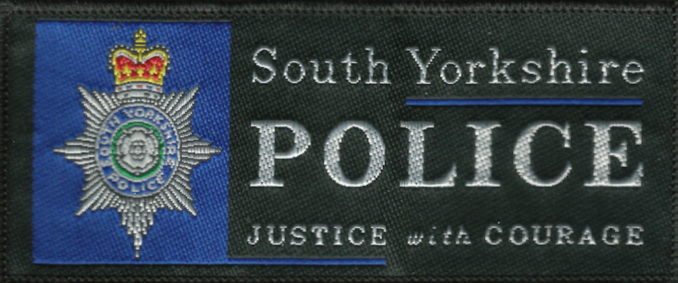
South Yorkshire,
Dickelbers – Licence CC BY-SA 3.0
Selective References & Further Reading
BBC, Rotherham PC Failed to Act on Abuse Case more from this
The Guardian, Police Officer Dies
The Guardian, Fake Rape Charity
John Healy MP, Support for fake charity
(Healy thought he’d removed this from his site but he’d just removed it from the news section)
John Healy MP, Statement Following Convictions
The Sun, Sex Ring Fake Charity
© Always Worth Saying 2022

